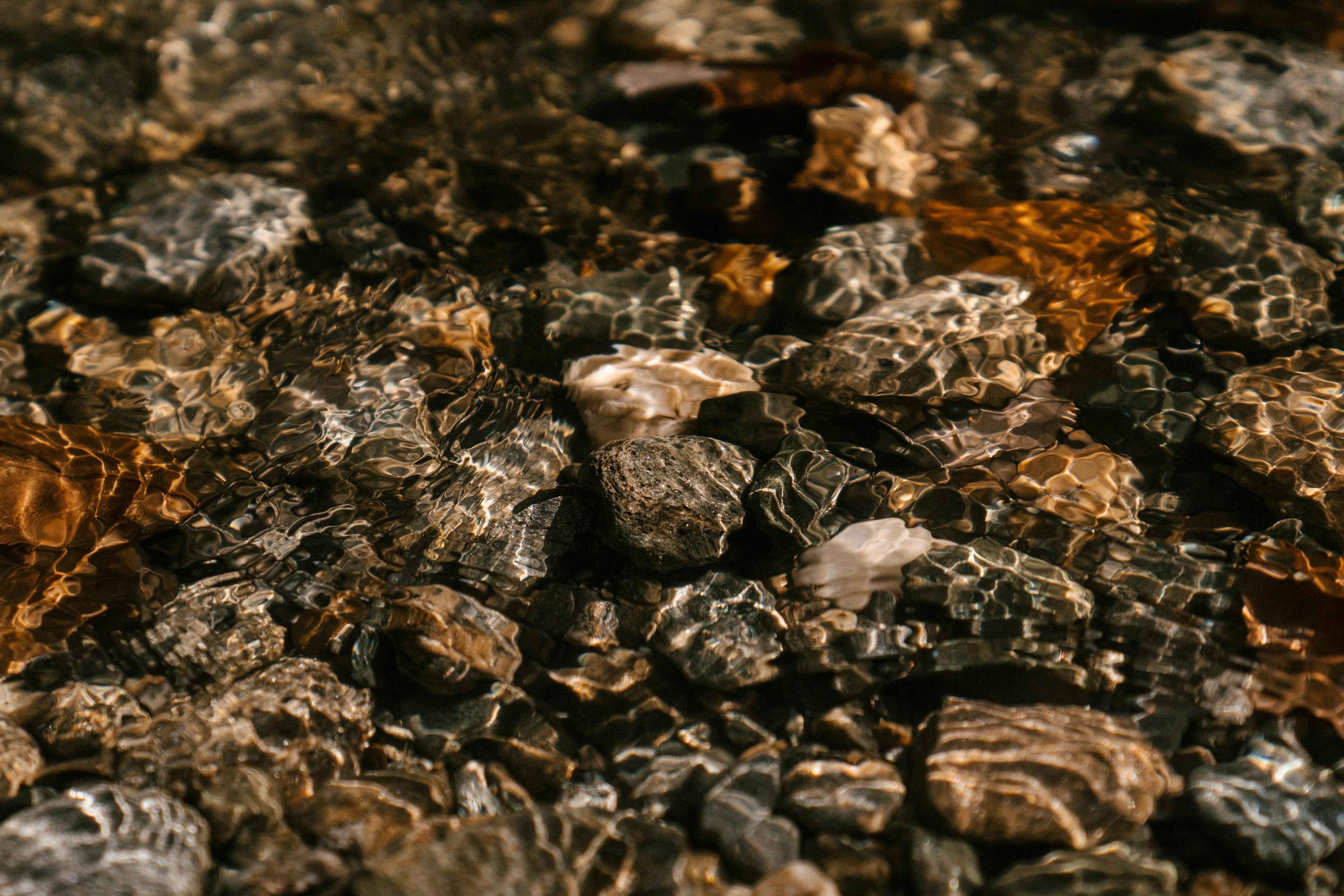Welcome to this article discussing the similarities and differences between mineral water and distilled water. As we explore these two types of water, it is important to note that although they may appear similar, they are actually quite different. Mineral water is sourced from natural springs and contains naturally occurring minerals, while distilled water is created by removing all minerals from regular tap water through distillation. We will further explore the differences between these two types of waters in the following article.No, mineral water is not the same as distilled water. Mineral water is water that has naturally occurring minerals in it, while distilled water is created by boiling the water and then condensing the steam into a clean container. Distilled water does not contain any minerals, while mineral water does.
What Is Mineral Water?
Mineral water is water that contains a variety of minerals, such as calcium, magnesium, sodium and potassium. It is naturally sourced from springs or wells and can be found in many countries around the world. Mineral water is usually bottled at the source and has a distinct taste due to its mineral content. It is often used for therapeutic purposes and is also believed to have certain health benefits. Some studies suggest that it may help reduce the risk of certain diseases, such as heart disease and cancer. Additionally, some people believe that it can help improve digestion and overall health. Mineral water also contains trace amounts of various other minerals, such as iron, zinc, and copper.
Mineral water has been used since ancient times for its health benefits. It was believed to have medicinal properties and was used to treat many ailments. In modern times, mineral water has become increasingly popular as an alternative to tap water due to its perceived health benefits. Many people choose to drink mineral water instead of tap water because they believe it is healthier. However, there is no scientific evidence that mineral water offers any additional health benefits over regular tap water.
What Is Distilled Water?
Distilled water is a type of purified water that has had both impurities and minerals removed. It is achieved by boiling the water and then condensing the steam into a clean container, leaving impurities behind. This process leaves the water without any taste or odor, as many of the dissolved minerals have been removed. Distilled water is widely used in many industries as it is considered to be one of the purest forms of water available.
The process of distilling removes bacteria, viruses, heavy metals and other contaminants from the water, making it safe for human consumption. It is also used in many medical applications such as kidney dialysis machines and other medical equipment where pure water is essential for maintaining proper function. In addition to this, distilled water can also be used in steam irons and car batteries as it does not leave harmful mineral deposits behind like regular tap water does.
Although distilled water does not contain any minerals or essential nutrients that are necessary for our health, it can still be beneficial as it helps to keep our bodies hydrated. It has been suggested that drinking distilled water can help to
Types of Mineral Water
Mineral water is water that contains minerals, such as calcium, magnesium, and sodium. These minerals are naturally occurring and can be found in underground sources or in streams and lakes. Mineral water has a distinct taste, which can be either pleasant or unpleasant depending on the mineral content. It is typically sold in bottles or cans, though some brands are available in bulk sizes. Mineral water is often used for its perceived health benefits, as it is thought to provide essential nutrients to the body. It can also be used to enhance the flavor of foods and beverages.
Types of Distilled Water
Distilled water is created by boiling regular tap or spring water and collecting the steam that is produced. The steam is then condensed back into liquid form, resulting in a purer form of water than what was initially used. Distilled water does not contain any minerals or other contaminants, so it has a neutral taste and does not have any added flavors. It is also free from bacteria and other microorganisms, making it ideal for cleaning surfaces or for medical use. Distilled water can be found in bottles or jugs at most
Mineral Water vs Distilled Water
When it comes to the differences between mineral water and distilled water, the main difference is that mineral water contains minerals, while distilled water does not. Mineral water usually comes from a natural spring and has been filtered for impurities. It has a distinct taste and is often enriched with minerals like calcium and sodium. On the other hand, distilled water is created by boiling water and then collecting the steam that is created. It has no minerals or other impurities, but since it does not contain any minerals, it may taste flat or bland.
Another difference between mineral water and distilled water is their level of purity. Mineral water is usually considered to be purer than distilled water because of its natural filtration process. However, both types of water can still contain trace amounts of contaminants from the environment they are sourced from. Both types of water can also be treated with chemicals to remove impurities before being sold commercially.
The final difference between mineral water and distilled water is in their cost. Mineral waters tend to be more expensive than distilled waters because they have gone through more processing steps in order to remove impurities before they are sold

Do Mineral or Distilled Water Have Health Benefits?
There is much debate as to whether mineral or distilled water have health benefits. Mineral water is water that contains a high concentration of minerals such as calcium, magnesium, sodium and potassium. Distilled water is water that has been heated and vaporized to remove impurities and minerals. While research into the benefits of mineral and distilled water is limited, there are some potential benefits associated with each type of water.
In terms of mineral water, there are some potential health benefits associated with drinking it. One potential benefit is that it may help promote hydration due to its high mineral content, which can help replenish electrolytes lost through sweat. Additionally, the minerals found in mineral water may also play a role in helping to maintain healthy bones and teeth by providing essential nutrients such as calcium and magnesium.
When it comes to distilled water, there are also some potential health benefits associated with drinking it. One benefit is that it may help support kidney health by removing harmful toxins from the body more effectively than other types of water. Additionally, distilled water may be beneficial for those with digestive issues as it does not contain any impurities that could
Comparing the Taste of White and Brown Rice
When it comes to rice, there are two popular varieties to choose from – white rice and brown rice. Both have their own unique flavor and texture that makes them stand out from one another, but which one is tastier? Ultimately, the answer to this question depends on personal preference.
White rice is known for its light, fluffy texture and mild flavor. It’s usually cooked in a pot with a ratio of two parts water to one part rice. Once it’s cooked, it can be served as a side dish or incorporated into dishes like stir-fries or fried rice. It’s also commonly used in sushi.
Brown rice has a nutty flavor and chewy texture. It takes longer to cook than white rice (about 45 minutes) since it still has its husk intact. Brown rice is a great source of fiber, vitamins, minerals, and antioxidants that make it healthier than white rice. It can be served as a side dish or added to salads or soups for extra nutrition and flavor.
At the end of the day, both white and brown rice have their own unique taste that
Can You Cook with Either Type of Water?
Cooking with either type of water is possible, depending on the recipe. Hard water contains minerals such as calcium and magnesium, which can affect the texture and flavor of some dishes. Soft water is generally preferred for cooking because it doesn’t contain these minerals and can be used to make light, fluffy dishes such as cakes, breads or pancakes. Soft water is also better for boiling potatoes or pasta since it won’t leave behind a chalky residue. For soups and sauces, however, hard water might be preferred since it has a richer flavor. In general, it’s best to use the type of water specified in your recipe for the best results.
When making coffee or tea, soft water is usually recommended because it won’t interfere with the flavor of the beverage. Hard water can make coffee taste bitter due to its high mineral content. Tea brewed with hard water can also have an off-flavor because of the minerals. For this reason, many people prefer to use soft water when brewing their favorite hot beverages.

Conclusion
Mineral water and distilled water are not the same. Mineral water is sourced from natural springs and contains certain minerals, while distilled water does not contain any minerals or other contaminants. Distilled water has been boiled to remove impurities, but it can still contain some trace elements from the source of the steam used to create it. The primary difference between mineral and distilled water lies in the mineral content, with mineral water containing more minerals than distilled water. Mineral water also typically tastes better than distilled due to its various minerals, although this taste preference is subjective.
No matter what kind of drinking water you prefer, it is important to stay hydrated and drink plenty of fluids every day. If you are looking for a specific kind of drinking experience or health benefit, it is important to research the differences between mineral and distilled waters before making your decision.
In conclusion, mineral and distilled waters are different in terms of their mineral content and taste. While both offer potential health benefits, one may be more suitable for a particular situation than the other depending on individual needs and preferences.

